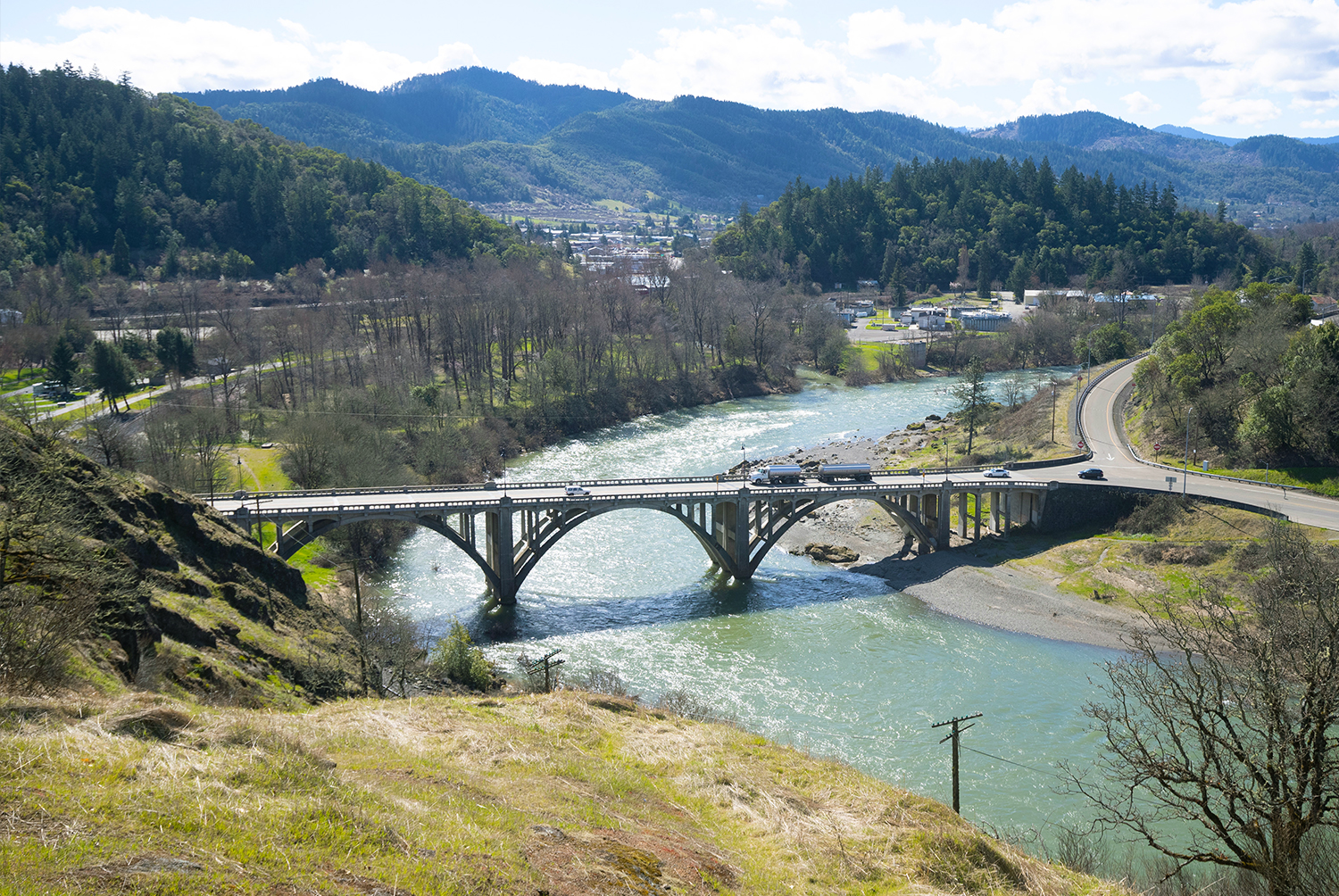Gardening in Eden

Rich soil, great weather and a long growing season make the Umpqua Valley a little slice of heaven for gardening enthusiasts.
Story by Becky Radliff, Photos by Thomas Boyd
The sight of a cherry tree laden with pink blossoms, the scent of lilacs on a gentle breeze, the thought of homegrown tomatoes fresh off the vine…sometimes it’s just a little tease of one of your senses that makes you want to garden.
You can see lilac bushes lining your driveway, a pink cherry tree blocking your neighbors’ ugly garage and rows of tomatoes and carrots growing in that sunny spot where the grass is always brown in the summer.
“Spring in Oregon is just amazing,” says Chris Rusch, president of the Douglas County Master Gardeners. “Almost overnight, the hills will go from brown to emerald green, trees will start blooming and bulbs will start flowering.”
Friendly temperatures and a sliver of sunshine will motivate even those with brown thumbs to get outside and plant. And there may be no better place to see your gardening dreams become a reality than in the Umpqua Valley.
“The Umpqua Valley is unique in that it’s a Mediterranean climate, so we have one of the longest growing seasons in Oregon,” says Rusch, who has gardened on her family’s property in Tiller for the past 45 years. “That climate is conducive to growing all kinds of fruits and vegetables. Most of us have forest loam soil too, and that’s easy to grow in. With just a little compost, you can turn it into rich garden soil in just a little while.
“So there’s great soil, great weather and a long growing season. It’s a little piece of heaven!”
And because of people like Rusch and the hundreds of Master Gardeners in the region, the answers to your gardening questions can be just a phone call away. Or simply visit the group’s Discovery Garden near Roseburg and find out for yourself if turning your back lawn into a vegetable patch is a viable option.
GARDENING CAN TAKE A LOT OF WORK, BUT THE FRUIT — OR VEGETABLES OR FLOWERS — OF ALL THAT LABOR IS ALWAYS WORTH THE EFFORT.
Open from dawn to dusk, the Discovery Garden boasts 19 different types of gardens, ranging from a butterfly garden to a Japanese garden, and including a huge vegetable patch called the Victory Garden. Volunteer Master Gardeners not only tend to the plants, but also work at the plant clinic.
“We get a lot of landscaping questions,” says Rusch. “People will call and ask us to help identify weeds and how to control them. There are also a lot of diseases that pop up during cool, wet springs, so we have people ask what they can do to fix it. Usually it’s a fungus disease this time of year.”
Another meaningful job the Master Gardeners took on in 2011 is donating produce from the Victory Garden to Douglas County’s United Community Action Network, which in 2017 received more than 7,000 pounds of fresh vegetables from the group. Discovery Garden also includes a children’s space – an interactive learning place that includes a small library of kid-friendly gardening books.
To support their efforts and spread the cultivation of healthy plants throughout the community, each spring the Master Gardeners host the Douglas County Plant & Garden Expo at the fairgrounds. Proceeds from the plant sale are used to keep the Discovery Garden open and operational.
Gardening can take a lot of work, but the fruit – or vegetables or flowers – of all that labor is always worth the effort, Rusch says.
“It’s very satisfying to plant a small seed and see it grow into a wonderful edible product, to open the freezer in the middle of winter and enjoy a stew from summer vegetables or to open a jar of pears and bake a pie,” she says.
IF YOU GO
What: Discovery Garden
Where: 238 River Forks Park Road
Hours: Dawn to Dusk
What to see: Children’s Garden (with a library), Victory (vegetable) Garden, Butterfly Garden, Herb Garden, Japanese Garden, Shade Garden, Straw Bale Garden, Perennial Flower Border, Easy Access Garden, Dwarf Fruit Tree Orchard, Hedgerow, Sun Garden, Ornamentals Garden, Rock Garden, Xeriscape Garden and The Pavilion.
Signs provide direction for self-guided tours, but friendly volunteer gardeners are often onsite to help visitors. Easy-to-read informational boards about composting, worm bins, biochar and raised beds are also plentiful.
Website:
douglascountymg.org/discovery_garden.html
IF YOU GROW
Top tips from Master Gardener Chris Rusch:
1. Get your soil tested. Call or stop by the Douglas County extension office (1134
S.E. Douglas Ave., Roseburg) for more information. They will not only test your soil, they’ll also make recommendations for improving it.
2. Make a plan (before you buy plants). Walk around your neighborhood and find shrubs and trees that you like and will grow well in your area.
3. Define your space. If you’re planting vegetables, make sure they get plenty of sun and have good soil drainage.
4. Try raised beds or containers. For freedom from bad soil or if you don’t have a lot of room, this is a great way to maximize the space you have and start right away.
5. Think about irrigation. Gardening can be expensive if you’re using city water, so plan on using lots of mulch and a drip irrigation system to cut down on water consumption.
6. Become a master gardener. If you’re encouraged to learn more, winter is the season for classroom education. The 12- week master gardening course is offered every winter. There is usually a waiting list, so sign up early (right after you’re done harvesting your last tomatoes).








